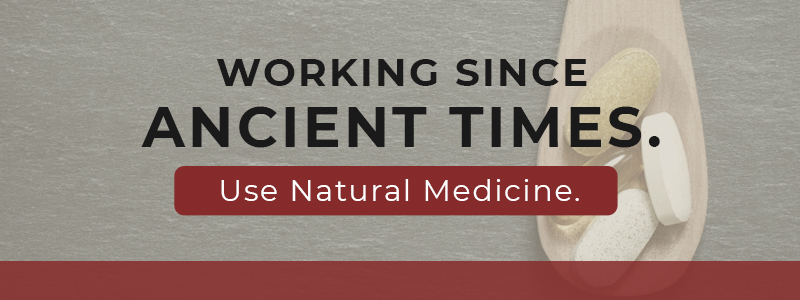Spring is the ideal time to start a garden. Whether it’s a vegetable or flower garden, homegrown produce and herbs are a wonderful way to spend more time in nature and to fill up your home with a variety of alternative medicines! In this blog, we’re focusing on alternative herbs that may help with many different ailments. So if you’re looking for a way to give your landscape some color and want a more holistic way of improving your health and wellbeing, give some of these flowers a try.
Garden Herbs That Double as Alternative Medicine
Calendula
A beautiful yellow-orange flower that looks similar to a daisy, calendula is also known as pot marigold and grows well in full sun. The flower’s petals can be harvested fresh or the whole bloom can be harvested and dried. Just be sure to harvest the flower before it goes to seed. The calendula flower is often used to create lotions that may provide relief for muscle spasms, to reduce pain and swelling, and sore throats.
Cilantro
A very popular garden herb, cilantro is the perfect garnish for tacos, mixed into guacamole, or cilantro seeds, known as coriander, are a common ingredient in Indian curries. Cilantro is a great indoor herb that can be grown in medium-sized pots.or if you grow it outside, it does well in full sun or part sun/shade. Cilantro is a great source of antioxidants as well as:
Folate: Essential for growth spurts and the production of red and white blood cells.
Potassium: Can reduce blood pressure and relieve feelings of anxiety and stress.
Beta-carotene: Our bodies convert beta-carotene into vitamin A, which is needed for healthy skin and is good for eye health.
Manganese: Has antioxidant properties and may help reduce inflammation.
Lemon Balm
A vibrant green color, lemon balm looks similar to mint, but has a fresh, lemony scent and flavor. Lemon balm should be planted in full sun, but can tolerate shade. It prefers well-drained, sandy soil. If you’re starting the plant from seed, start it indoors and transplant outdoors after about two months. Lemon balm is often brewed into tea and can help relieve symptoms of anxiety, insomnia, and gastrointestinal problems. The herb contains a compound called rosmarinic acid, which gives the plant its alternative medicine properties.
Peppermint
This bright green herb has a refreshing flavor and is easy to grow in large pots indoors. Peppermint also works well outdoors and prefers moist soil, fun sun, and should be planted after the last frost. The herb can either be brewed into teas or made in an essential oil. Either way, peppermint offers a variety of benefits as an alternative medicine, including relief for an upset stomach, headaches and migraines, an improved energy level, and it may help clear sinuses.
Rosemary
Rosemary potatoes anyone? A great addition to any garden, rosemary is a low-maintenance plant, is drought-tolerant, and bees love it. Rosemary should be planted in the spring, after the last frost, and it prefers full sun and well-drained soil. Whether you add a sprig to your roast chicken or brew it into a tea, rosemary has antioxidant and anti-inflammatory properties, it may help improve digestion, and may enhance memory and concentration.
Mullein
Mullein starts as a small fuzzy plant with soft green leaves, but will grow into a tall stem (between six and 10 feet), and has yellow flowers. The plant is a biennial, meaning that it will grow a leafy base the first year, and then the stem will grow the second year. Mullein leaves provide the most health benefits and can be brewed into a tea, but the flowers can also be used. Mix up a tea to provide relief for a cough, cold and flu symptoms, asthma, and migraines.
Thyme
Another popular garden herb, thyme is a wonderful aromatic that can be used in a variety of recipes and drinks. The herb can be grown both indoors and outdoors. Thyme prefers well-drained soil and should be planted two to three weeks before the last frost. Thyme is a great source of vitamins C and A, which makes it a great alternative medicine for cold symptoms. Thyme also provides copper, fiber, iron, and manganese.
There are dozens of alternative medicines that you can get straight from your garden! Rather than making a trip to the pharmacy for pharmaceutical medication, brew up some tea, or mix up a lotion and experience relief from symptoms that are caused by a variety of ailments.
When there are several side effects to prescription and even over-the-counter medication, why not choose a natural alternative that can provide the same relief? At ICNR (International Center for Nutritional Research), we are passionate about providing customers with alternative medicine made with natural ingredients. Whether you’re struggling with chronic pain, migraine headaches, anxiety, or depression, find a solution that harnesses the power of nature! Shop our alternative medicine collection today, and contact Dr. Gerald H. Smith for a consultation.


